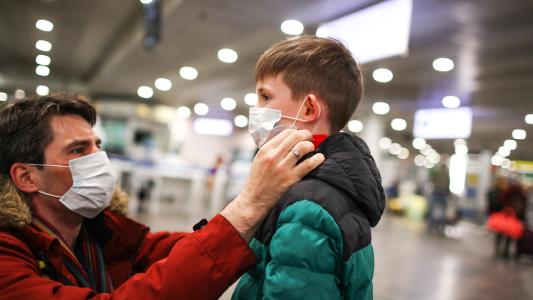A team of researchers, perched on the Pacific at San Diego’s La Jolla Institute for Immunology, have demonstrated that people who have been infected by one of the coronaviruses that cause the common cold may carry some protections against their brutal relative, SARS-CoV-2.
Numerous labs have found that blood samples from people never exposed to SARS-CoV-2 — the culprit behind COVID-19 — have immune cells that may help stave off the virus.
Spilling The T (Cells)
The immune system is notoriously complex, and the fact that the body’s immune response to the novel coronavirus is so unusual makes it even more so. In addition to the hunter-killer cells that seek and destroy, and the antibodies that have found their way into the news cycle, another type of cell may be key: memory T cells.
T cells have numerous functions, including helping other immune cells develop into virus fighters. Studies have already shown that people who were never infected by SARS-CoV-2 have memory T cells that respond to the virus.
That suggests that memory T cells who are veterans of skirmishes with one of the four coronaviruses that cause the common cold may stick around for a while and can recognize SARS-CoV-2, perhaps even assisting in repelling the invader, a phenomenon known as cross-immunity.
This may account for the wide array of severity in COVID-19 cases, as well as the high share of asymptomatic cases; plenty of people are afflicted by the common cold each year. Already-primed T cells could lead to a mild case — or potentially pique the immune system into overreaction and a cytokine storm.
The La Jolla team found that these memory T cells respond to specific protein sequences in SARS-CoV-2. Similar protein sequences were then identified in the more benevolent coronaviruses, proteins that activated the same memory T cells that appear to fight the new coronavirus.
Catch a Cold to Combat Covid?
Evidence for cross-immunity in coronaviruses is pretty sparse, Stephen Kissler, a postdoc researcher of immunology and infectious disease at the University of Cambridge, writes in The Conversation.
Figuring out if common cold coronaviruses help prime our immune system to protect us from COVID-19 is difficult, partially because we just plain don’t keep good tabs on them.
Studies have shown that people who were never infected by SARS-CoV-2 have memory T cells that respond to the virus.
Ideally, Kissler writes, researchers would have reams of historical data showing us where common cold coronavirus outbreaks have occurred, which can then be studied to see if there’s a connection to their COVID-19 rates.
Kissler’s got an idea to help us figure it out, however: a human challenge trial, like the kind being proposed to accelerate coronavirus vaccine development. Subjects would be purposefully infected with a mild coronavirus, then infected with SARS-CoV-2 to see how the immune system holds up.
As you can imagine, this leads to a real briar patch of ethical issues, and would be potentially risky — especially considering we have no current weapon against SARS-CoV-2 that can simply halt the disease in its tracks if things go south (although there are now promising treatments that help in some cases).
We’d love to hear from you! If you have a comment about this article or if you have a tip for a future Freethink story, please email us at tips@freethink.com.






